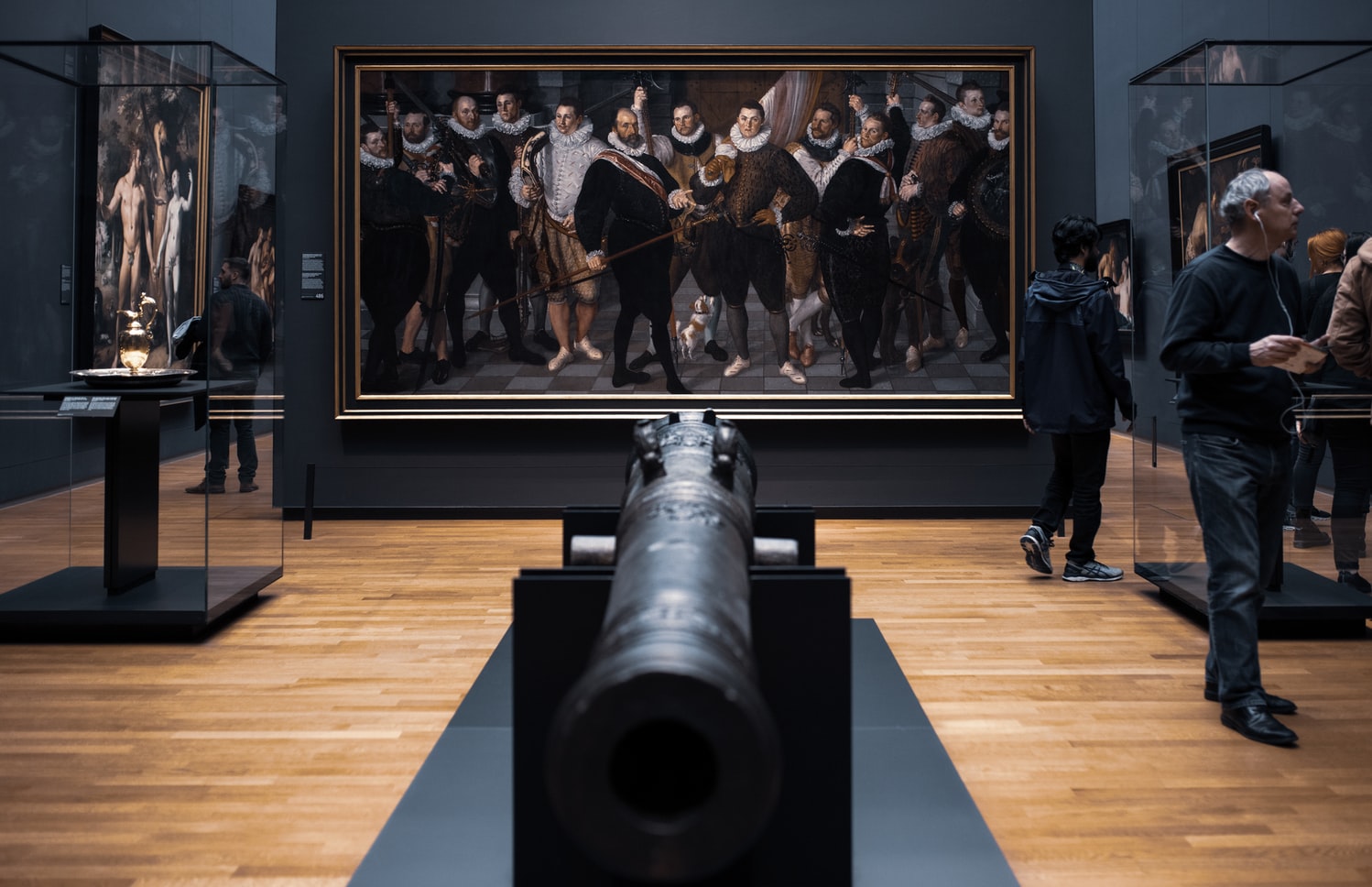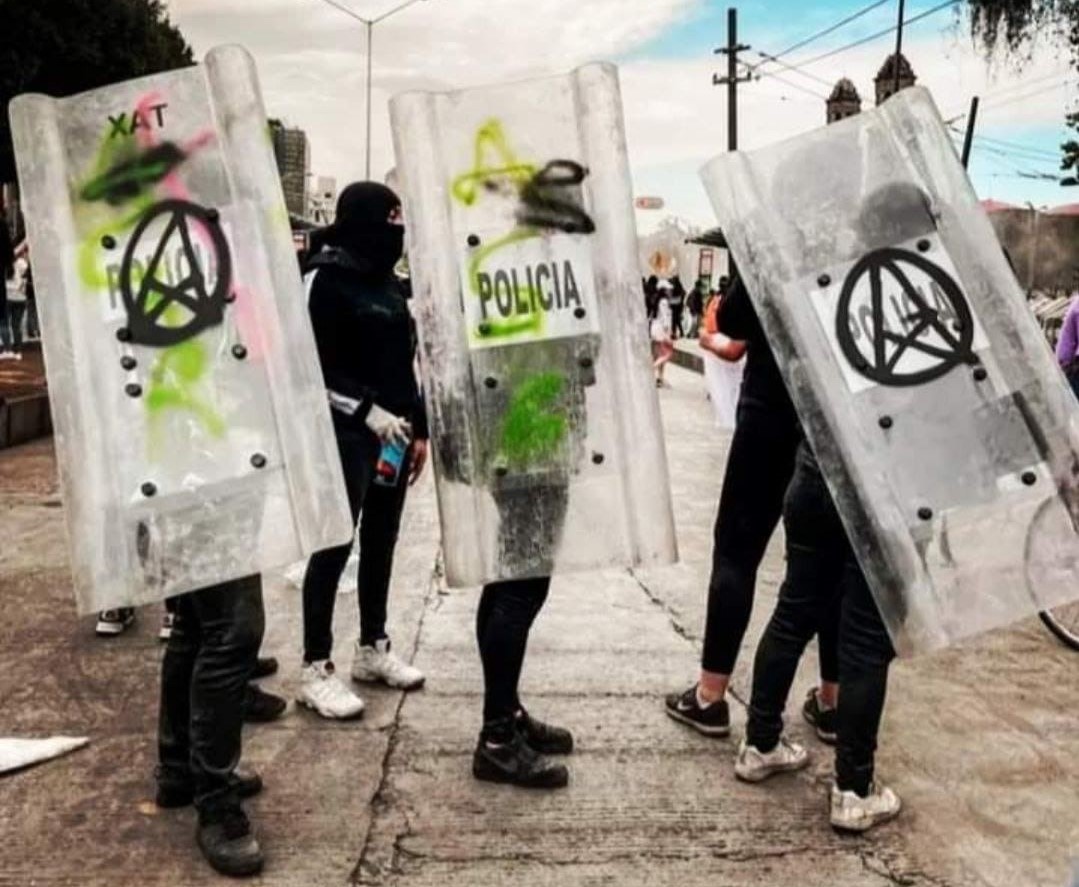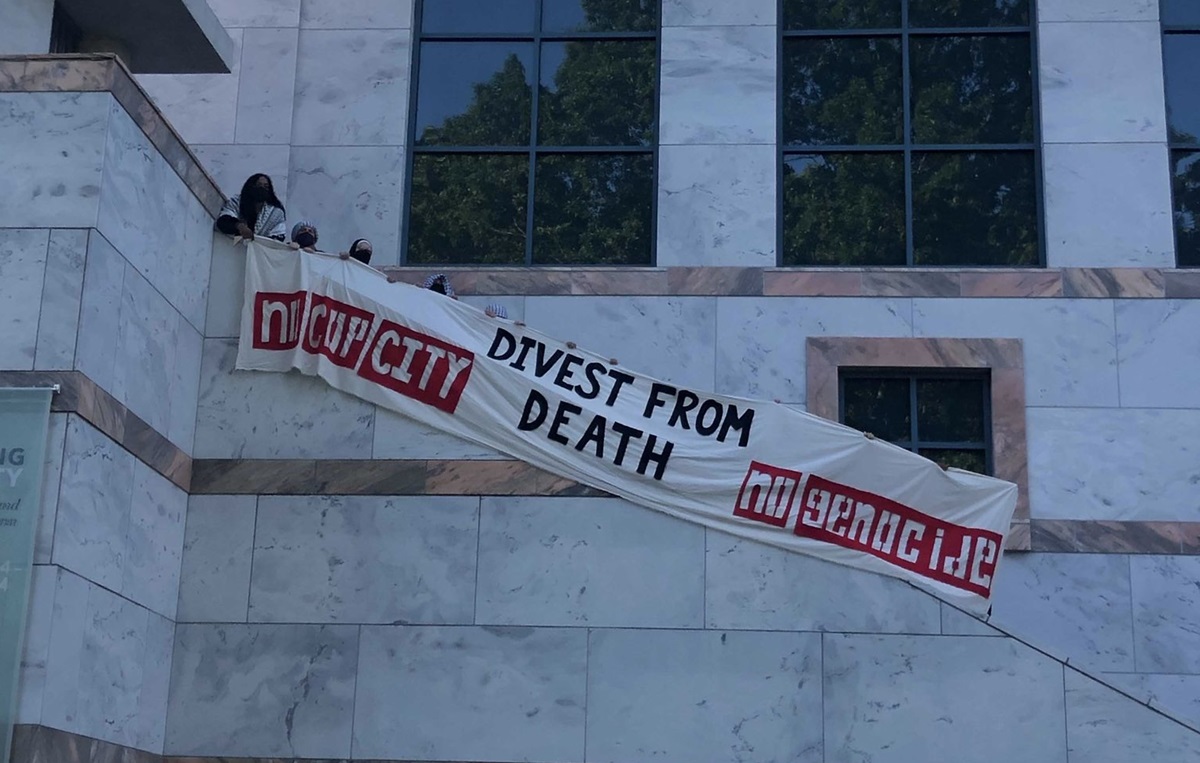Filed under: Featured, International Coverage

The mistreatment of refugees at the Belarusian and Polish borders has recently caught the world’s eye. There isn’t much analysis from reporters beyond how shameful it is to use some of the world’s most desperate people as chess pieces to resolve political disputes.
These refugee crises that “first world” countries cry about when refugees appear at their borders don’t just happen; their origins are important to understand. They’re a result of the same governments that have defined the borders of Europe, North America, and so on.
The phrases “first world” and “third world” essentially mean rich areas and poor areas in the world as determined by borders and historical conquest. Obviously every country in the world has its own political and economic elites, but the first world’s relative stability is a legacy of colonialism. Their sense of superiority stems from the suffering they’ve historically inflicted on others, and they are who created the borders that create refugee crises.
Any discussion of a refugee crisis must recognize that it’s rooted in Eurocentricism and Europe’s horrific centuries of conquest– the living legacy of colonialism. Let us survey five of the world’s biggest refugee crises: Syria, Venezuela, Afghanistan, South Sudan, and Myanmar. These are the largest diasporas of refugees in the world, and all are rooted in Western intervention and European domination.
Syria
Shortly before the official fall of the Ottoman Empire in 1922, French and British forces were secretly planning how to divide that waning empire’s previously conquered territories. This plan was called the Sykes-Picot Agreement, and under it most Arab lands under the rule of the Ottoman Empire were divided into British or French spheres of influence after World War I.
Syria specifically became a member of France’s “League of Nations,” a fancier term for being a colony of these European powers. In 1920 the French officially took control of Syria and nearby Lebanon. The French formally seizing power triggered uprisings within the country, including the Great Syrian revolt from 1925-1927.
Following World War II, Syria became a so-called independent nation; the French left their former colony in disarray. Multiple local warring factions and people of various cultural backgrounds had been crammed into the artificial borders of an invented nation, Syria, by French and British rulers drawing lines on a map. The French pullout left a power vacuum, and power shifted between different political parties until 1970 when Hafez al-Assad, the military defense minister at the time, staged a coup. He remained in total power until 2000 when his son Bashar al-Assad replaced him as ruler of the country. Bashar continues to rule today.
In March 2011, amidst the Arab Spring, a group of students in the city of Dara’a were arrested and tortured for spray painting anti-government graffiti. This resulted in generalized outrage in an already tense climate of social division and economic despair. Grassroots anti-government resistance escalated and developed into more militant struggle by various demographics already opposed to the Assad regime. An uprising turned quickly into a civil war thanks to Assad bombing entire cities.
With Russia fully supporting the existing state and the USA looking to intervene without putting boots on the ground, the Syrian civil war became a complicated proxy struggle with its roots in the Cold War. The USA was scrambling to arm anyone who was against al-Assad, from Kurdish fighters to front groups for Al-Qaeda and ISIS/ISIL/Daesh. As Daesh grew more powerful, the USA decided cooperation with Assad was preferable, a decision made at the expense of Kurdish fighters who’d brought the fight to the horrific authoritarians of Daesh more effectively than any military in the world.
Assad’s power relied on his family’s ability to suppress dissent by distributing oppression and/or benefits among the various demographics of Syria. With the loss of this power, and with Western investment in the civil war as a proxy war, a country already overwhelmed by Western economic sanctions became an extreme humanitarian disaster. Over 320,000 people have died in the Syrian Civil War since 2011 and more than 13 million are in need of urgent aid. At the moment over 6 million Syrians are internally displaced, with another 6 million living as refugees abroad. Just as the rise of Daesh can be attributed to the American invasion of Iraq, Assad can be attributed to the tampering of colonial powers in the region. The people who live in so-called Syria bear the brunt of both a colonial history and a contemporary proxy war between Western nations.
Afghanistan
Throughout its history Afghanistan has faced the wrath of both the British and Russian Empires. The current crisis in Afghanistan, however, is due to American involvement and more Cold War proxy games.
The Taliban were a religious fundamentalist authoritarian war force who did not support the Saur Revolution, the Afghan communist party’s 1978 takeover of the government. The Taliban was and is fascistic (and certainly anti-democratic), but in the 1980s, their anticommunism served American interests. The American government provided the Taliban with arms and other resources to aid them in defeating both internal communist forces and the invading Soviet military that supported the ruling communist party.
The Taliban then established a far-right Islamic state which ironically fell after 2001 due to the invasion by the same U.S. forces that had propped it up. The Taliban was accused of giving safe haven to Osama Bin Laden. In symbolic pursuit of a single man, the United States invaded the country and attempted to institute a government more friendly to both American interests in the region and the overall post-911 “war on terror.” This failed, miserably, repeatedly, for decades.
Much of the Taliban’s strength and its track record of rule can be attributed to American support and historical tampering in the region by Western forces. Whether local forces play a part or not, the broader picture of the catastrophic situation in Afghanistan is rooted in British and Russian conquests, the Cold War and the American invasion. The West’s hand is found once again in this crisis.
The real numbers are likely higher, but according to the UN Refugee Agency, there are at least 2.6 million registered Afghani refugees abroad, with at least 3.5 million internally displaced.
Myanmar
The Rohingya crisis remains one of the most intense refugee situations in the world. Torture, mass murder, razing of villages, and sexual violence are a constant threat to the Rohingya ethnic group in Myanmar with the government deliberately turning a blind eye. The Rohingya remain an unrecognized Muslim minority in Myanmar and face rampant grassroots and state violence by both Buddhist fascists and Junta operations. Today there are close to a million registered Rohingya refugees in the world.
The area now known as Myanmar was under British colonial rule from 1886 to 1948. The present-day nation of Myanmar, like many former British colonies, was designed by foreign powers drawing on maps. Its borders contain multiple religious and ethnic groups. During World War II, the British chose to arm the Rohingya population within Myanmar to fight against others who the British felt were sympathetic to the Japanese.
Following Burmese independence in 1948, those social divisions that had been given force of arms during World War II remained inflamed and rage on to this day. Myanmar could be considered one of the longest-running civil wars in modern history, and while we denounce the social divisions religion inflicts on humanity, we must also recognize that the current crisis is rooted in the political maneuvering of the British empire against the Japanese empire.
The Rohingya continue to face relentless assaults and violence from Myanmar’s ruling military junta and its authoritarian Buddhist supporters. Although longstanding ethnic and religious elements and historical differences play a part in this crisis, British rule and social tampering in the region set the stage and stoked the flames.
South Sudan
South Sudan is the third-largest refugee crisis in the world after Afghanistan and Syria. The United Kingdom and Egypt ruled present-day Sudan and South Sudan from 1899-1956 as a dual colonial state under an imperial government called the Anglo-Egyptian Condominium. Since Egypt was a political and military puppet of British colonial rule, however, it was really the U.K. calling the shots.
As in many of the cases above, Britain took power via a “divide-and-conquer” policy. The British heavily invested in Arab areas, primarily in the North of the country, while disregarding predominately Black regions. The British deliberately invested in Arab regions not only as part of a broader racist pogrom but specifically to dehumanize large segments of the Sudanese people and establish a social power structure that remains in place. South Sudan’s contemporary warring factions, the horrible atrocities such as Darfur and the specifics of who holds military power can all easily be traced back to the hand of Britain.
Venezuela
Although Venezuela was historically a subject of Spanish conquest, its contemporary crisis is a result of American intervention. While we do not support Chavez or Maduro in any way, the USA’s relentless sanctions on the country are what have caused one of the most resource-rich countries in the world to face such extreme scarcity and poverty.
After the death of Hugo Chavez, social unrest in response to Maduro taking power was greeted with intense repression by the Venezuelan state. Allegedly in response to this, Barack Obama signed harsh sanctions on Venezuela in 2014. However considering the repression seen in countries such as Bahrain or Saudi Arabia that go without American penalization, this was likely a smoke screen to diplomatically punish Venezuela for its “socialist” government’s nationalization of the country’s huge oil reserves.
Whatever U.S. media may claim, Chavez and Maduro removing the possibility for American industries to profit in the region is without a doubt what triggered these sanctions. Obviously Cuba and Iran have fared better under similar sanctions, and likely some of the extent of the current hardship is due to the corruption and sheer stupidity of the Maduro regime, but there is no disputing that the authoritarian left’s attempt to change the social framework of Venezuela prompted a massive campaign of economic sabotage and infliction of misery by the United States. It is estimated that there are around 6 million Venezuelan refugees worldwide.
In Conclusion
What is important with these five cases is that we see that the current crisis stems from Eurocentric legacy in the world. The climate crisis fueling the most recent surges in migration can be attributed primarily to North American and European interests, or the industrialized nations that supply their excess.
The divisions that cause so many civil wars leading to so much displacement can be traced to deliberate divide-and-conquer tactics by colonial rulers as well as the collapse of the Ottoman Empire and the cruel and arbitrary placing of borders by European powers following World Wars I and II. The divisions between India and Pakistan or Israel and Palestine are among the most prominent conflicts that have resulted from these practices.
It is inevitable that those on the unlucky sides of these imaginary “borders” will risk everything to escape their unfortunate fate. Americans leaving Afghanistan, the neverending colonization and razing of Haiti, and the neoliberal global capitalist system (that is Eurocentric at its original core) are responsible for the desperation we see on the borders of the Southern U.S.A., around the European Union, Australia, and basically all over the planet at this point.
As anarchists, having a radical perspective is what differentiates us from other political trends. Rather than try to play the games of power by the established rules and divisions, we seek to destroy the game altogether. To be “radical” means to take something by its roots.
The white man is not native to the USA, South America or Australia. He came as an invader. Now, ignorant nationalism blinds xenophobes to the foundations of what the political right calls a refugee “invasion.” For those who have historically benefited from and/or who are responsible for a crisis to dismiss those trying to escape the crisis is an act of genocidal entitlement.
It is strange to refer to millions of suffering refugees, these victims of the first-world — as “chickens coming home to roost”, but what else is there to say when the wealthier nation-states of the world pretend that they, the first world, are victims.
Additional Information
- The Rohingya Crisis Is Another Colonial Legacy
- Cold War and Colonial Origins of the Syrian Civil War
- Sudan In Crisis
- Disaster in Haiti and Chile: Understanding the Situation from A Revolutionary Perspective (Fire to the Prisons Magazine Issue #9)
- Why the Threat of U.S. Intervention in Venezuela Revives Historical Tensions in the Region
- A Historical Timeline of Afghanistan
photo: redcharlie via Unsplash




